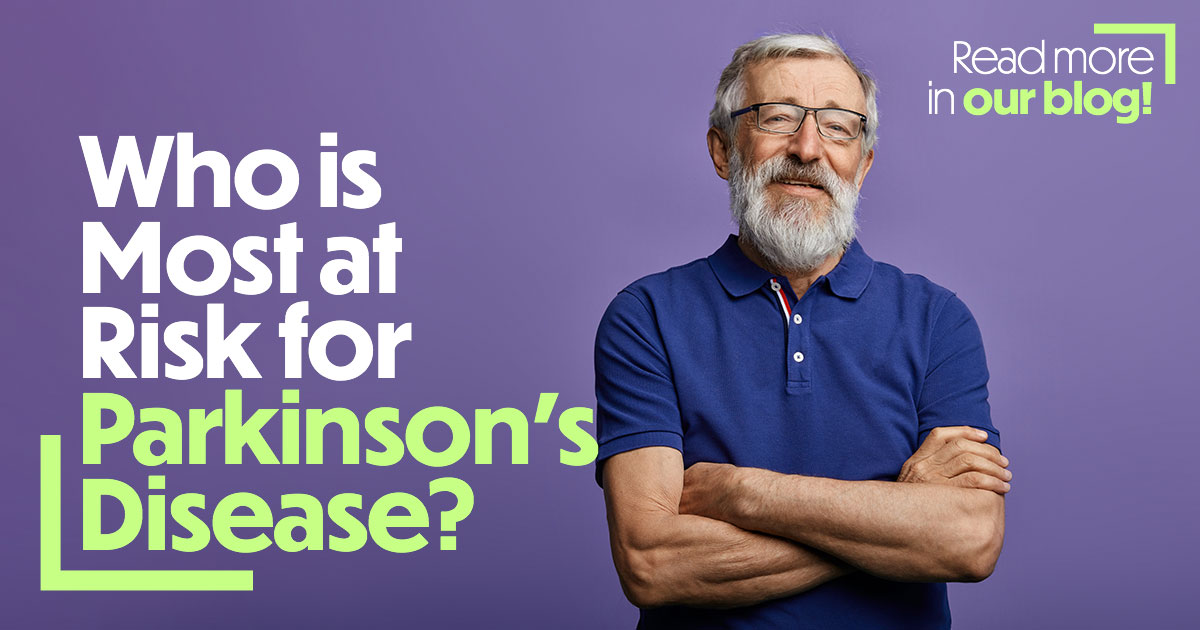Parkinson’s disease (PD) is a progressive movement disorder that affects an estimated 1 million people in the U.S. With PD, nerve cells in the brain break down or die. Many of these nerve cells produce dopamine, a chemical messenger in the brain. This causes abnormal brain activity and impairs movement along with other PD symptoms. Risk factors include age, heredity, and gender. Some of these are clear; others are not. Let’s look at who is at most risk for developing Parkinson’s disease.
Symptoms of Parkinson’s

Early on with PD, your face may not show much or any expression. When you walk, your arms may not swing, while your speech may become softer or even slurred. The symptoms of PD worsen as it progresses over time.
Parkinson’s is characterized by its most common motor symptom of slow, rhythmic tremors. Other symptoms include stiff or rigid muscles, slowed movements, sleep disturbances, constipation, anxiety, depression, fatigue, etc. As with any new changes in your movement ability, if you show two or more of these symptoms, you should immediately see your doctor. PD signs and symptoms are also shared with other medical conditions, so it’s essential to get checked out either way.
What are the Risk Factors for Parkinson’s?
In some cases, genetic mutations have been identified in those with PD. However, factors that increase your risk include:
- Age– Early onset PD is rare, and those affected start showing symptoms around 60 years of age.
- Heredity– Having a family history of PD increases your risk a little, but having multiple family members with PD increases it a lot.
- Gender– PD affects 50% more men than women.
There is no known prevention or cure for Parkinson’s. Diagnosing PD involves taking a medical history and neurological examination. More work needs to be done through clinical research studies to answer these deficits and improve ways to manage PD.

Richmond Behavioral Associates are looking for participants to join upcoming clinical research studies for Parkinson’s. Participating in a research study helps us better understand the condition so potential future options can be found.
References:
https://www.mayoclinic.org/diseases-conditions/parkinsons-disease/symptoms-causes/syc-20376055





